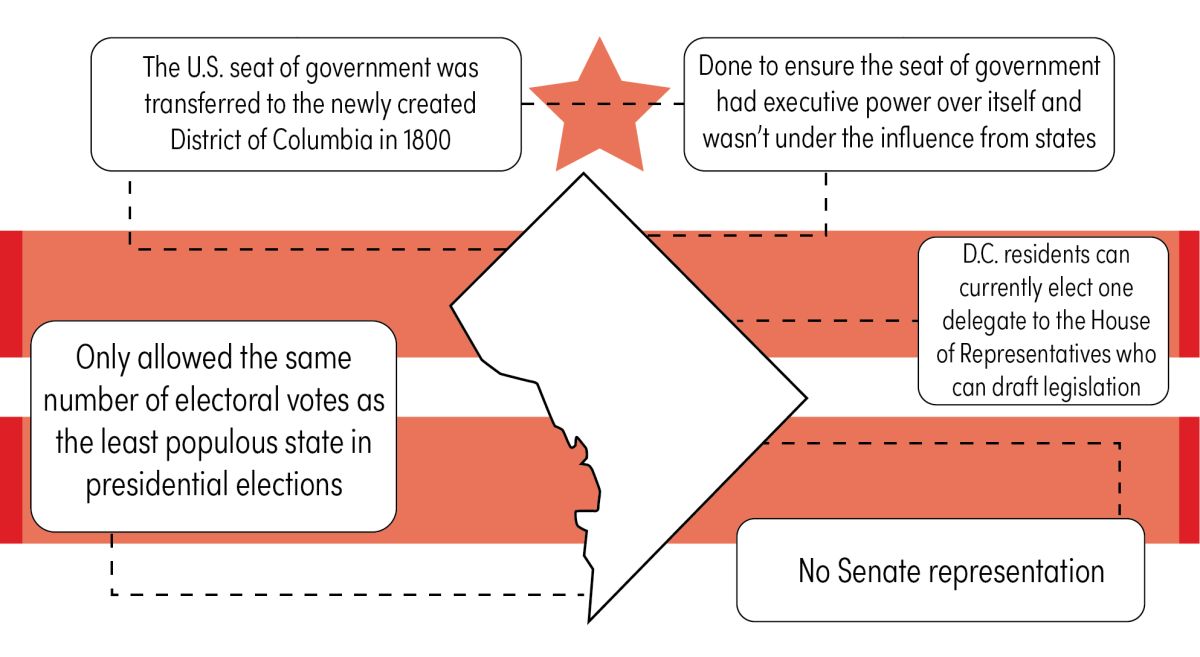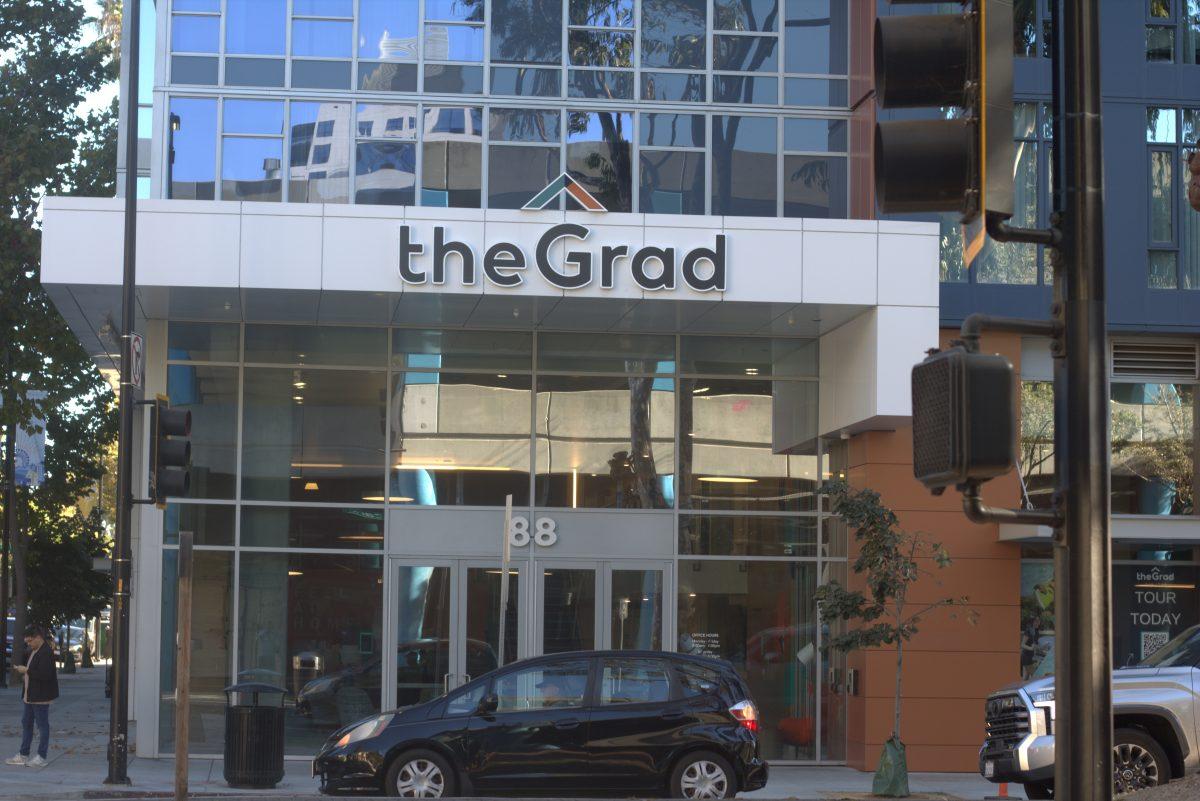Washington D.C. residents have fought to make our nation’s capital a state since the beginning of the 19th century and it’s time to start listening to them.
A bill was introduced to the Senate to make this dream a reality and for the sake of voting rights equality, it needs to be passed.
When the seat of government, or the location where a country governs, was transferred to the District of Columbia in 1800. Residents were stripped of their right to both state and national representation according to the FAQ page of D.C. Statehood Yes We Can, a nonprofit advocating for the rights of D.C. residents.
This was done to ensure voters in D.C. wouldn’t have more weight in decision making because of their close proximity to the seat of power.
D.C. residents can currently elect one delegate to the House of Representatives who can draft legislation, according to Statehood D.C.
The district is only allowed one representative, the same number of delegates as the least populous state Wyoming with 569,000 residents.
However, because the nation’s capital is considered a neutral area, the delegate from D.C. can’t vote on any decision except procedural matters and in congressional committees, according to a June 29, 2020 Congressional Research Service article. The House can also overturn decisions made by the district’s locally elected government.
Washington residents also aren’t allowed to elect delegates to the Senate, meaning they have no representation in that branch of Congress.
In presidential elections, D.C. is given the same number of electoral votes as the least populous state.
This is unfair to D.C. residents, especially because they’re nowhere close to being the least populous state.
Many people argue that Washington D.C. is too small to be a state, but that isn’t true.
Washington D.C. has a population of approximately 714,000, which is higher than the population of Vermont and Wyoming, according to World Population Review. This means about 714,000 American citizens are being deprived of their right to formal government representation.
Delaware Democratic Sen. Tom Carper’s bill, the Washington D.C. Admission Act, would undo this injustice by making D.C. a state and giving its residents the representation they deserve. It was introduced in January, but the House hasn’t voted on it yet.
The bill gained more support following the Jan. 6 insurrection where a mob stormed the Capitol building.
Despite lack of Senate representation, D.C. police rushed to defend the building where poorly prepared federal security failed. Defending the Capitol is not their job, but they showed up anyway.
Now, newly heightened security on Capitol Hill has created a bigger divide between D.C. residents and federal government officials. Many residents feel like they have no say in what’s happening in their own city, according to a Feb. 24 Bloomberg Businessweek article.
D.C. residents deserve to have proper congressional representation, especially when decisions about Capitol Hill happen in their own backyard.
How can the U.S. claim to be a democracy but deny representation to those at the heart of the country?
Washington residents pay the highest per-capita federal income taxes in the U.S., according to D.C. Statehood government website. But since it is a district and not a state, it has no authority in how these federal tax dollars are spent throughout the country.
This conflicts with our Constitution in the clause “taxation without representation.” D.C. is taking on the responsibilities of statehood but reaping none of the benefits.
If the district became a state, residents would also pay state taxes. Public programs in D.C. including schools, parks and libraries are currently funded through federal taxes because it isn’t a state, but if residents paid state taxes that wouldn’t be necessary.
This means the federal government would have more money to put toward federal programs that would benefit the
country holistically.
D.C.’s statehood isn’t just a political issue, it’s also a racial justice issue. If Washington D.C. became a state, it would be the
only plurality-Black state in the U.S. according to D.C. Statehood.
A plurality-Black state means while Black people don’t make up more than half the state’s population, they’re still the most populous ethnic group.
The U.S. has historically overrepresented the white vote at the expense of minorities and their votes are still being disenfranchised through intimidation, gerrymandering or purposefully withholding voting materials.
Making D.C. a state would be a step toward equality in local, state and federal government influences.
Washington D.C.’s lack of representation is a great injustice against its residents and it goes against the core values of our democracy. D.C. must be allowed statehood to provide equal representation to the American people.









































